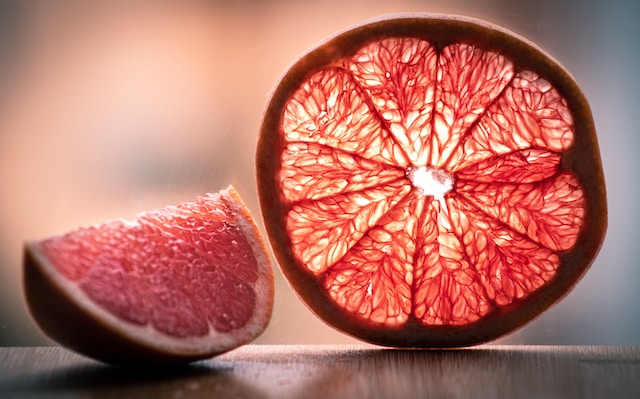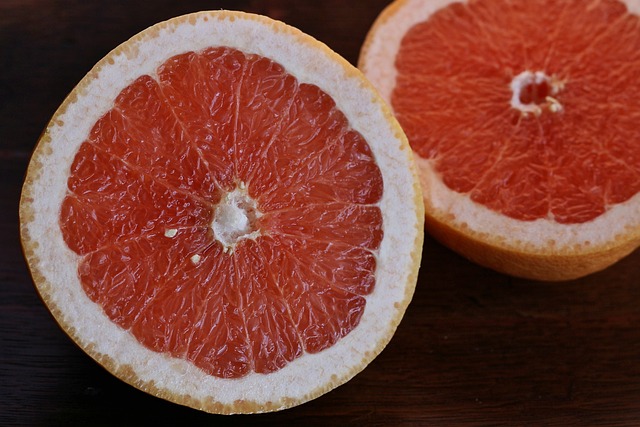Grapefruit Seed Extract: Concerns Over the Safety of a Common Supplement

Grapefruit seed extract is often touted as a strong antimicrobial, a supplement that can help with treating infections both topically and internally. Unfortunately, the data appears to indicate that the antimicrobial effects come from toxic chemical antimicrobial contaminants that are not approved for oral consumption. In other words, grapefruit seed extract appears to be an adulterated product that could have health risks associated with its use.
Background
Grapefruit seed extract is a liquid extract derived from grapefruit seeds. In the 1970s, Jakob Harich, a physicist, patented the formula for making grapefruit seed extract. The original version used glycerin to extract constituents from grapefruit pulp and seeds, usually at elevated temperature combined with ultraviolet light. Later patents included magnetic field exposure to remove metal particles (Harich 1997).
High Concentrations Needed for Antimicrobial Effects of Grapefruit Seed Extract
A research group from Poland attempted to confirm antimicrobial effects from grapefruit seed extract. They found that very high concentrations of grapefruit seed extract were needed for any antimicrobial effects. In the study, concentrations of 33% or higher could inhibit candida, but were not effective against tinea (the fungus that causes ringworm) or other types of mold (Krajewska-Kułak 2001).
A study from 2004 found similar antimicrobial effects from lab produced extracts, but concentrations again had to be quite high for most organisms to be susceptible, ranging from 4 to 17% (Cvetnić 2004). By way of comparison, penicillin, an antibiotic, is generally effective at concentrations of just 0.005% (Kowalska-Krochmal 2022). From both studies, it appears that some grape-fruit seed extracts are only minimally antimicrobial and require very high concentrations to inhibit a subset of bacteria or fungal organisms.
Stronger Antimicrobial Effects with Commercially Prepared Grapefruit Seed Extract
A study using a commercial grapefruit seed extract found dramatic reductions in the amount of salmonella on raw chicken using 0.1 and 0.5% concentrations of grapefruit seed extract (Xiong 1998). A separate study on the antibacterial properties of commercial grapefruit seed extract also found efficacy (Heggers 2002). The commercial product maintained antimicrobial properties down to 0.5% concentrations. A study on lyme bacteria using a commercial grapefruit seed extract found inhibition down to concentrations of 0.0013% (Brorson 2007).
Obviously, there appears to be a highly significant difference between different types of grapefruit seed extracts prepared in the lab and those purchased from commercial suppliers. By the late 1990s, studies were starting to discover why commercial products appeared to have much stronger antimicrobial effects: the addition of synthetic chemical preservatives.
First Evidence of Contamination or Adulteration with Chemical Preservatives of Grapefruit Seed Extract
The first reports of potential issues around grapefruit seed extract stem from a study in Japan (Sakamoto 1996). In the study, the author’s compared lab prepared grapefruit seed extract to a commercial product. The two extracts varied considerably under analysis. The commercial product was found to contain a synthetic preservative methylparaben and a synthetic antimicrobial, triclosan. Triclosan has since been banned in hand soap, but is still found in numerous personal care products even though health concerns have been identified (Weatherly 2017).
A separate study verified a number of contaminants in grapefruit seed extract, including benzethonium chloride, triclosan and methylparaben (Woedtke 1999). The only commercial grape fruit seed products in the study that displayed effective antimicrobial properties contained benzethonium chloride. As a chemical, benzethonium chloride is used as a topical antimicrobial. The compound is not approved for ingestion or for use as a food additive.

In 2006 another analysis of commercially available grapefruit seed extracts found similar results with numerous products containing antimicrobial chemical additives that are not approved for human consumption (Ganzera 2006). And another analysis also found chemical additives which also correlated with the antimicrobial effects of commercial grapefruit seed extracts (Spinosi 2007). One study even found some products contained over 20% concentrations of synthetic antimicrobial additives, a shockingly high percentage (Avula 2007).
Other studies have continued to confirm the presence of synthetic antimicrobials and preservatives (Sugimoto 2008, Bekiroglu 2008). The research strongly suggests that grapefruit seed extract is not a natural antimicrobial. From the published research it appears quite likely that most commercial products are contaminated with antimicrobial chemicals that have never been approved for human ingestion. While the commercial producers of grapefruit seed extract have made claims that the chemicals in their product occur naturally, this claim has been disputed in the research literature (Trapman 2002).
Conclusion
Grapefruit seed extracts appear to be contaminated with large quantities of antimicrobial chemicals. These chemicals are the most likely source of the antimicrobial effects of grapefruit seed extracts. As such, there are valid concerns for the safety of commercial grapefruit-seed-extract-containing products, especially when consumed by mouth.



